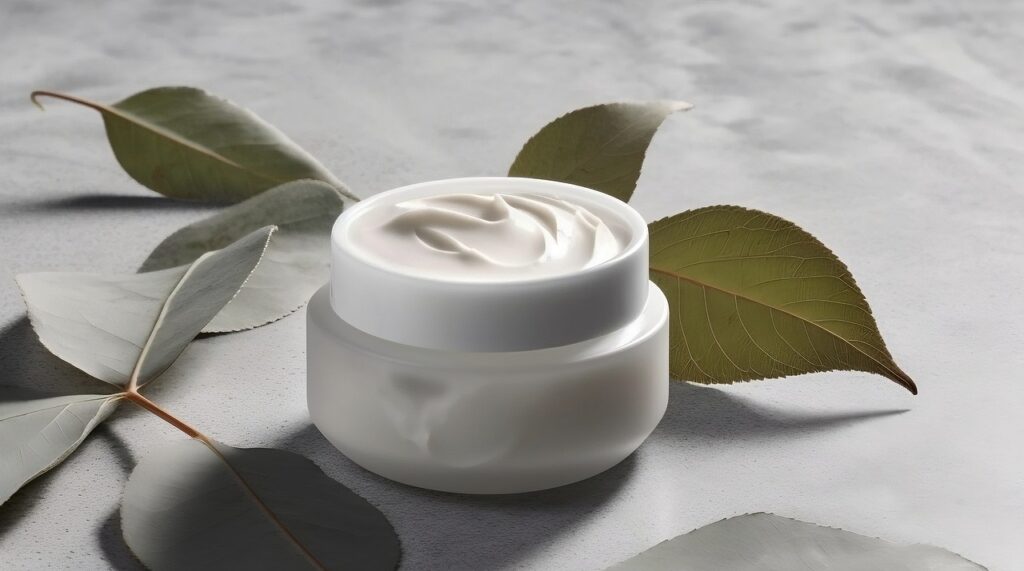In the realm of skincare, understanding the nuances between dry and dehydrated skin is akin to deciphering a complex puzzle. Dryness and dehydration, often used interchangeably, actually denote distinct conditions with unique characteristics and treatment approaches. Additionally, delving into the realm of active ingredients like Ceramides, Hyaluronic Acid, Niacinamide, Retinol, and Vitamin C adds another layer of intrigue to the pursuit of healthy, radiant skin.
In this enlightening journey, we’ll:
- explore the disparities between dryness and dehydration,
- uncover the mechanisms of action behind key active ingredients,
- discuss common questions,
- investigate therapeutic strategies,
- and examine the indispensable role of compounding pharmacies in dermatology.
Deciphering the Differences: Dry Vs. Dehydrated Skin
Though they stem from distinct underlying causes, dry skin and dehydrated skin are often conflated.
Dry Skin:
Dry skin, also known as xerosis, is characterized by a lack of natural oils (sebum) produced by the skin’s sebaceous glands. This deficiency in sebum leads to impaired skin barrier function, resulting in moisture loss and a parched, rough texture. Factors such as genetics, environmental elements, aging, and harsh skincare products can exacerbate dryness.
Dehydrated Skin:
Dehydrated skin, on the other hand, pertains to a lack of water content rather than oil. It occurs when the skin’s natural moisture barrier is compromised, leading to an inadequate retention of water within the epidermis. Causes of dehydration encompass external factors like climate, excessive sun exposure, air conditioning, as well as internal factors such as diet, medication, and lifestyle choices.
Understanding Active Ingredients: Allies in Skincare
Ceramides:
Ceramides are lipid molecules naturally found in the skin’s outermost layer, the stratum corneum. They play a pivotal role in maintaining the skin’s barrier function, preventing moisture loss, and shielding against environmental aggressors. Ceramide-rich skincare formulations help replenish and fortify the skin barrier, promoting hydration and resilience.
Mechanism of Action: Ceramides bolster the lipid barrier, enhancing moisture retention and restoring suppleness to dry or compromised skin.
Therapeutic Role: Ceramide-infused moisturizers and creams are particularly beneficial for individuals with dry, sensitive skin or those prone to eczema and psoriasis.
Common Question: “Can ceramides help with anti-aging?”
Yes, ceramides not only hydrate the skin but also contribute to its overall health and resilience, thereby potentially reducing the appearance of fine lines and wrinkles over time.
Hyaluronic Acid (HA):
Hyaluronic Acid, a humectant renowned for its exceptional water-binding capacity, is a cornerstone in many skincare formulations. It attracts and retains moisture from the environment, helping to plump and hydrate the skin from within.
Mechanism of Action: HA molecules draw moisture into the skin, resulting in improved hydration, enhanced elasticity, and a youthful complexion.
Therapeutic Role: HA serums, moisturizers, and injectable fillers are widely utilized to address dehydration, fine lines, and volume loss, imparting a dewy, revitalized appearance.
Common Question: “Can I use hyaluronic acid if I have oily skin?”
Absolutely! Hyaluronic acid is suitable for all skin types, including oily and acne-prone skin, as it provides lightweight hydration without clogging pores or exacerbating oiliness.
Niacinamide (Vitamin B3):
Niacinamide, a versatile water-soluble vitamin, boasts an array of dermatological benefits, ranging from hydration and barrier reinforcement to anti-inflammatory and antioxidant properties.
Mechanism of Action: Niacinamide enhances ceramide synthesis, bolstering the skin barrier and diminishing trans epidermal water loss (TEWL). It also regulates sebum production, making it beneficial for oily or acne-prone skin.
Therapeutic Role: Niacinamide-based formulations help alleviate dryness, redness, hyperpigmentation, and acne, fostering a balanced, radiant complexion.
Common Question: “Can niacinamide be used with other active ingredients like retinol or vitamin C?”
Yes, niacinamide is compatible with most skincare ingredients and is often incorporated into multi-tasking formulations for synergistic benefits.
Retinol (Vitamin A):
Retinol, revered as the gold standard in anti-aging skincare, exerts profound effects on cellular turnover, collagen synthesis, and overall skin renewal. While primarily recognized for its wrinkle-smoothing prowess, retinol also plays a role in optimizing skin hydration and texture.
Mechanism of Action: Retinol accelerates epidermal turnover, shedding dead skin cells and promoting the emergence of fresher, more hydrated skin layers. It also stimulates collagen production, enhancing skin firmness and elasticity.
Therapeutic Role: Retinol-based products are instrumental in addressing fine lines, wrinkles, uneven tone, acne, and texture irregularities, fostering a luminous, youthful complexion over time.
Common Question: “Is retinol suitable for dry or sensitive skin?”
Retinol formulations vary in potency, and individuals with dry or sensitive skin may benefit from starting with lower concentrations and gradually increasing frequency to minimize irritation. Additionally, pairing retinol with hydrating ingredients like ceramides and hyaluronic acid can help mitigate dryness and sensitivity.
Vitamin C (Ascorbic Acid):
Vitamin C stands as a potent antioxidant powerhouse, shielding the skin from oxidative stress, UV-induced damage, and environmental pollutants. In addition to its protective properties, Vitamin C plays a pivotal role in collagen synthesis, skin brightening, and overall skin health.
Mechanism of Action: Vitamin C scavenges free radicals, neutralizing oxidative damage and preserving the skin’s structural integrity. It also inhibits melanin production, leading to a more even skin tone and enhanced luminosity.
Therapeutic Role: Vitamin C serums and creams are revered for their ability to brighten dull complexions, fade hyperpigmentation, and promote a youthful, radiant glow. Moreover, Vitamin C synergizes with sunscreen, bolstering UV protection and enhancing skin resilience.
Common Question: “What is the best way to incorporate Vitamin C into my skincare routine?”
Vitamin C is most effective when applied topically in the form of serums or creams. It’s best utilized in the morning to harness its antioxidant prowess and boost photoprotection. Pairing Vitamin C with sunscreen amplifies its UV defense capabilities, ensuring comprehensive skin safeguarding throughout the day.
The Role of Compounding Pharmacies: Tailored Solutions for Unique Needs
In the realm of dermatology, one size does not fit all. Compounding pharmacies serve as invaluable allies in crafting customized skincare solutions tailored to individual needs and preferences. Whether it’s formulating bespoke moisturisers, serums, or topical treatments, compounding pharmacists collaborate with dermatologists to address specific skin concerns, allergies, or sensitivities.
Compounding pharmacies play a pivotal role in dermatology by:
- Formulating Personalized Skincare Products: Compounding pharmacists possess the expertise to blend active ingredients at precise concentrations, accommodating unique skin types, conditions, and treatment goals.
- Addressing Allergies and Sensitivities: Patients with allergies or sensitivities to commercial skincare formulations can benefit from allergen-free or hypoallergenic alternatives compounded to their specifications.
- Enhancing Treatment Efficacy: Compounded formulations allow for the customization of active ingredient combinations and delivery systems, optimizing therapeutic outcomes and patient compliance.
- Supporting Specialty Treatments: Compounding pharmacies cater to niche dermatological needs, such as paediatric dermatology, alopecia, vitiligo, or wound care, by formulating tailored medications unavailable commercially.
Conclusion:
Understanding the distinction between dryness and dehydration, and harnessing the transformative power of active ingredients, is paramount to achieving optimal skin health and vitality. From ceramides and hyaluronic acid to niacinamide, retinol, and vitamin C, each ingredient plays a unique role in nourishing, protecting, and rejuvenating the skin. Moreover, the collaborative efforts of dermatologists and compounding pharmacists pave the way for personalized skincare regimens tailored to individual needs, ensuring that every complexion receives the care and attention it deserves in the pursuit of radiant, resilient skin.
To order prescription skincare tailored specifically to your needs, book a skincare consult with us today.
Follow us on Instagram for our latest skincare content!

Lane Khin, the compounding pharmacist of My Skin Pharmacy, brings a wealth of knowledge from the worlds of pharmacy and dermatology to the table. With degrees in Pharmacy and Applied Science from QUT, Lane combines a deep understanding of compounding and skincare with a friendly, accessible approach. Through My Skin Magazine, Lane shares her expertise, offering readers practical advice and insights into personalised skincare solutions. Lane has a real passion for helping others achieve their best skin.


